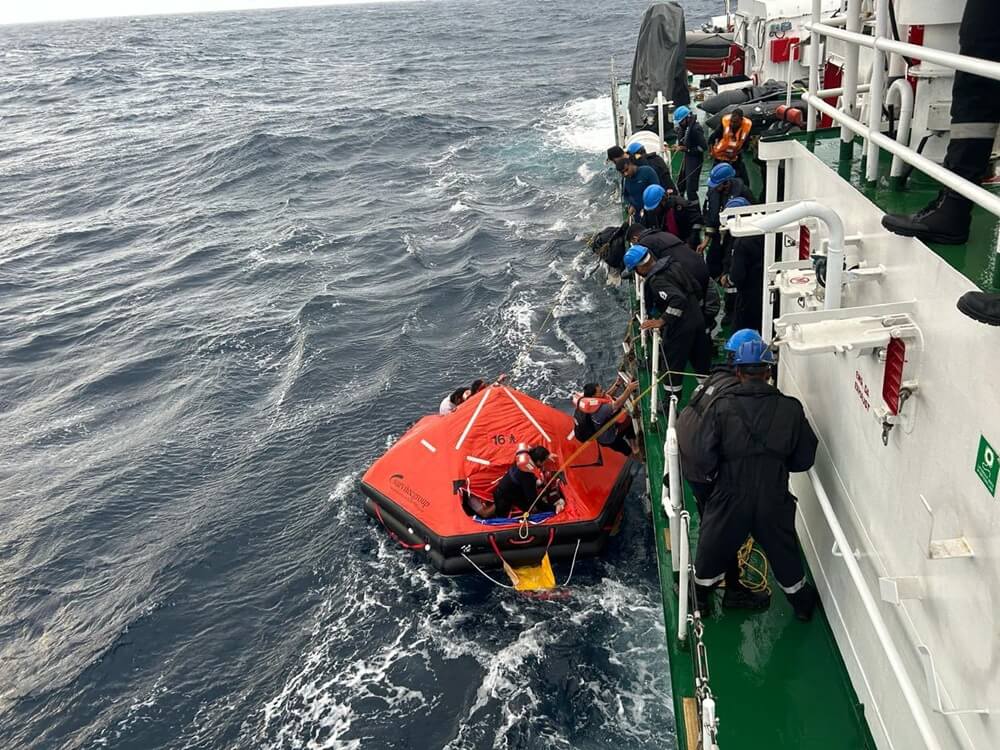MSC Boxship Sinks off the Coast of India
A small container ship suddenly capsized and went down off the coast of India on Sunday, the Indian Ministry of Defense reports.
On Saturday, the feeder MSC Elsa 3 was under way from Vizhinjam to Kochi with a cargo of 640 containers on board. The ship developed a list and the crew sent out a distress signal. The vessel’s list increased to 26 degrees, and it lost about 100 containers over the side.
The Indian Navy responded to the scene and rescued the Elsa’s crew from a liferaft.
The vessel went down with about 85 tonnes of diesel and about 370 tonnes of fuel oil in her tanks. No measurable spill has been detected to date, but monitoring continues.
The cause of the sinking is not yet known. In video footage provided by Indian authorities, conditions on scene at the time of rescue appeared moderate, with modest swells.
Courtesy Indian Ministry of Defense
MSC Elsa 3 was a small feeder ship built in 1997. The 28-year-old vessel had a history of port state control deficiencies during the past three years, including issues with her auxiliary engines, electrical systems, lifeboats and firefighting provisions, among others. Deficiencies are typically repaired and certified before departure, and are not definitive evidence of current onboard conditions.
It is the latest casualty involving a vessel operated by market-leading container line MSC, and it follows the grounding of MSC Baltic III off Newfoundland in February; the container collapse aboard MSC Houston V in March; the breakdown and emergency tow of MSC Talia F in April; and the grounding of MSC Antonia in the Red Sea earlier this month.
MSC underwent explosive growth during the pandemic era, in part by buying older ships and by keeping aging vessels in operation. MSC surpassed Maersk in January 2023 with a capacity of 4.2 million TEU to become the world’s largest liner company. By May 2023, a wave of chartering and purchasing – and a relative dearth of scrapping – took its fleet to 5 million TEU. The firm quietly passed the 6 million TEU mark in July 2024, and the company now operates 6.6 million TEU worth of capacity – plus more than 2 million TEU of new tonnage on order.





